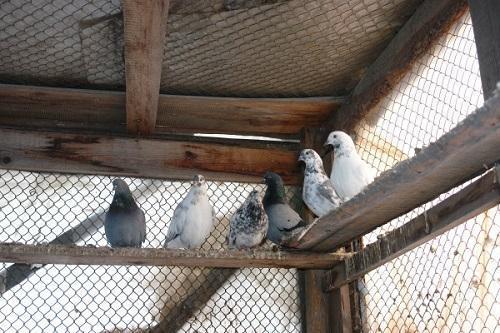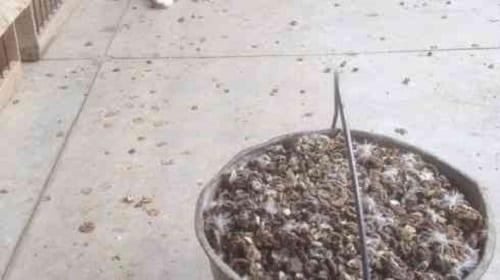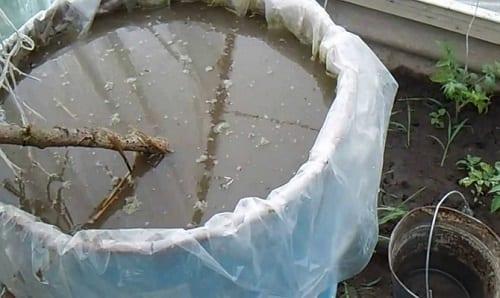Pigeon droppings as fertilizer for potatoes and tomatoes
When growing garden crops, one of the widely used fertilizers is waste from birds, in particular chickens and pigeons. The owners of private dovecotes can only be envied, because they have a valuable component for feeding under their feet. Experienced gardeners recommend using droppings for feeding only from poultry that eat grain. Urban pigeons find their food mainly in landfill waste, so their droppings may contain harmful substances.

Pigeon droppings are especially good fertilizers for tomatoes and potatoes. It is more efficient than manure, and contains a whole complex of nutrients necessary for obtaining a high-quality harvest of these crops. The presence of phosphorus, nitrogen and potassium in guano provides the main food for the normal development of tomatoes and potatoes. Pigeon droppings act on crops faster than other organic foods.
How to use
Pigeon manure is used in the same way as chicken manure, and has the same conditions of use.
The droppings should not be applied fresh, as the plants can simply “burn out” from the high concentration of elements.
In order for the waste to independently turn into a full-fledged fertilizer without harm to crops, it takes a lot of time, since the droppings tend to be stored for a long time without decomposing.
You can use pigeon droppings when growing garden crops in one of the following ways;
- apply dry;
- make an infusion;
- prepare compost on its basis.
Adding dry manure to the beds

Well-dried manure becomes completely safe and can already be used to fertilize potatoes and tomatoes just before planting or after harvesting. To do this, scatter dry excrement over the plot and level the soil with a rake, mixing it with the ground. The consumption rate depends on the culture:
- for potatoes - 50 g per 1 sq. m .;
- for tomatoes - 25 g per 1 sq. m.
Litter based solution

To make an infusion, pour 1 part of pigeon droppings with 10 parts of water. Add 2 tbsp to the workpiece. l. ash and 1 tbsp. l. double superphosphate. Leave the solution to infuse for 2 weeks, stirring occasionally. Potatoes and tomatoes should be watered with the prepared solution once a week.
After feeding with infusion, it is imperative to rinse the soil under the plantings with clean water.
Manure compost

Pigeon droppings keep well in the compost heap. To lay it down, the droppings are laid out in layers, alternating with sawdust, straw or peat. You can simply sprinkle it with earth, but this compost will be less nutritious.
In the fall, during plowing or digging potato beds, a ready-made compost at the rate of 20 kg per 10 sq. m.